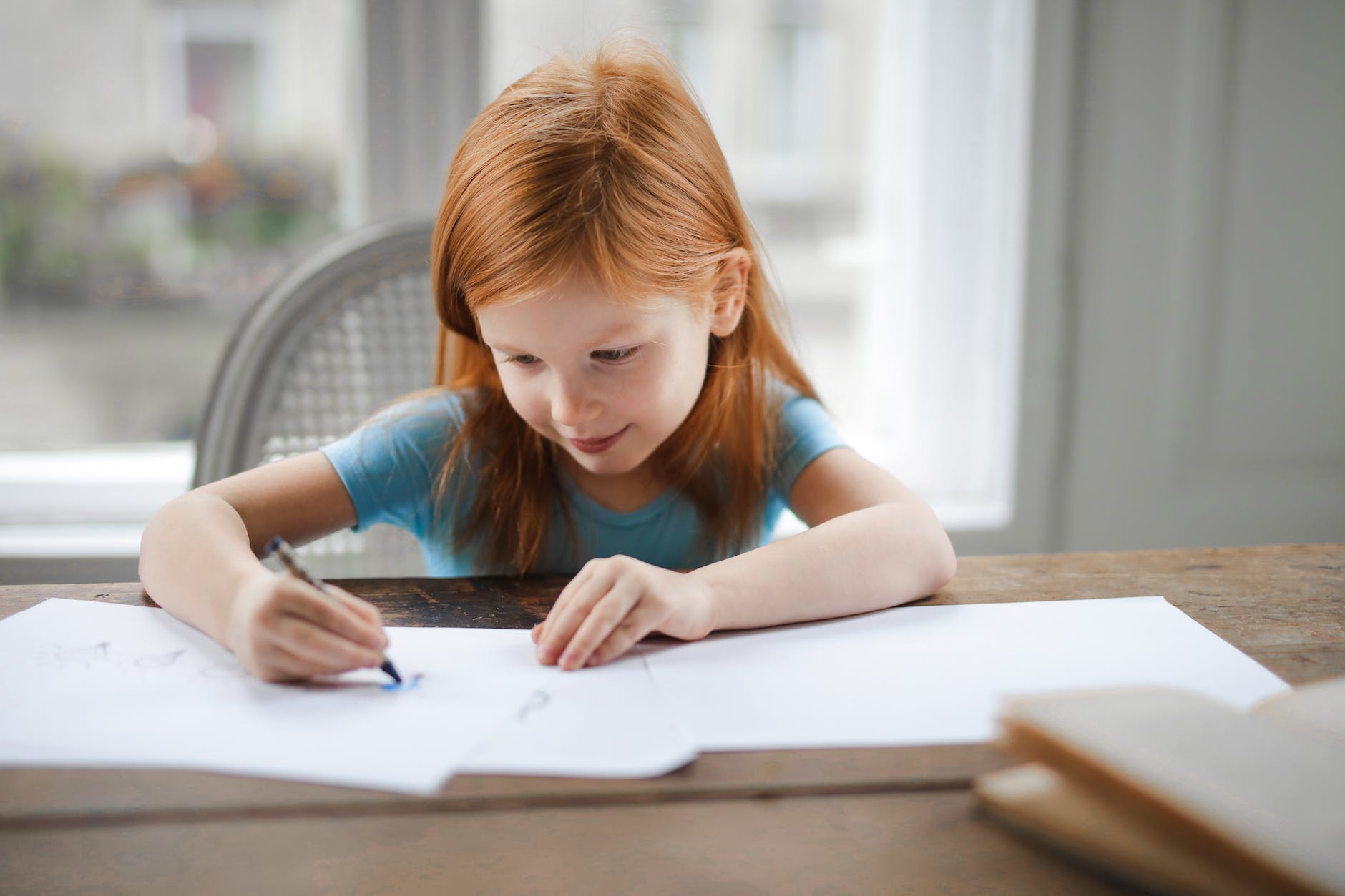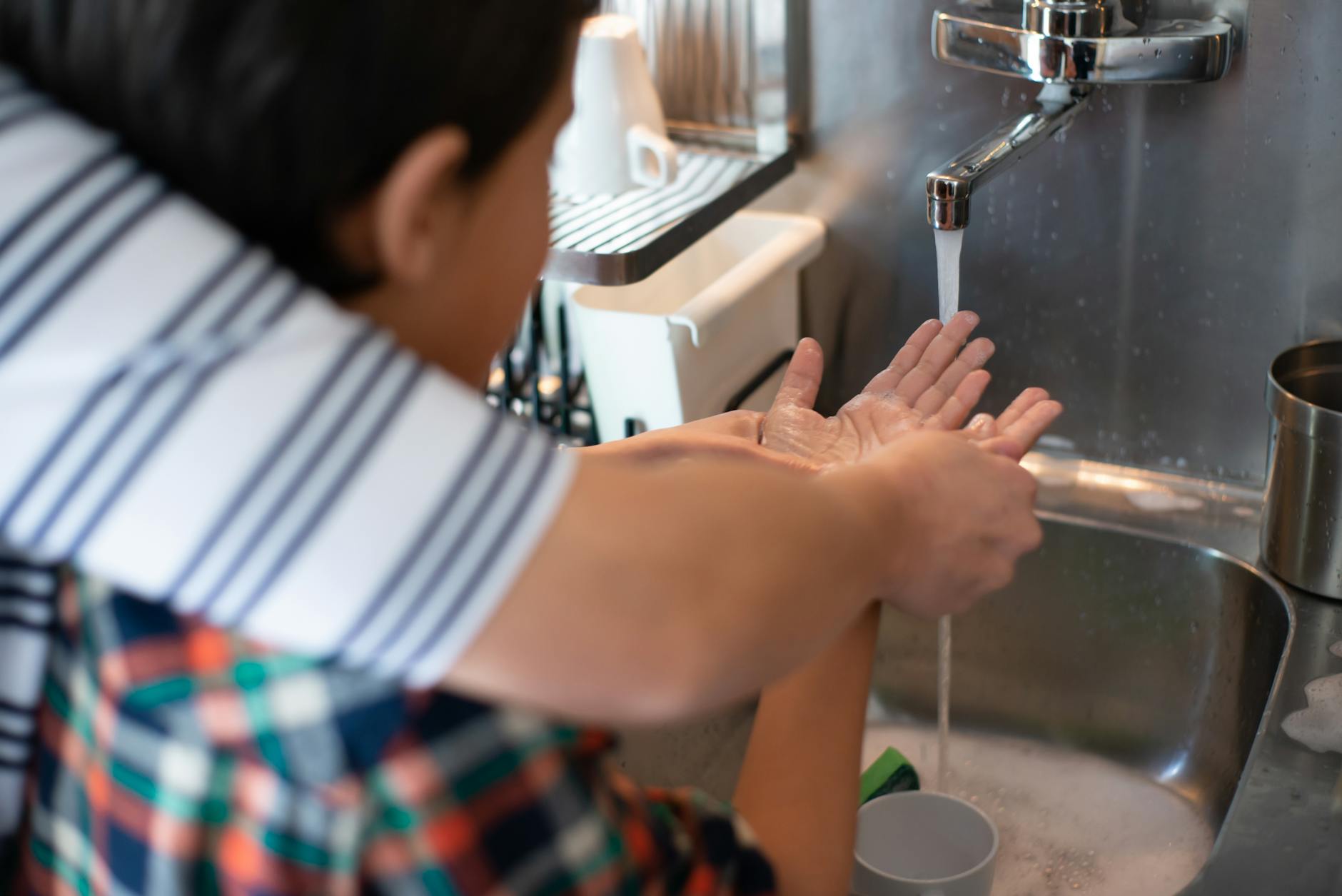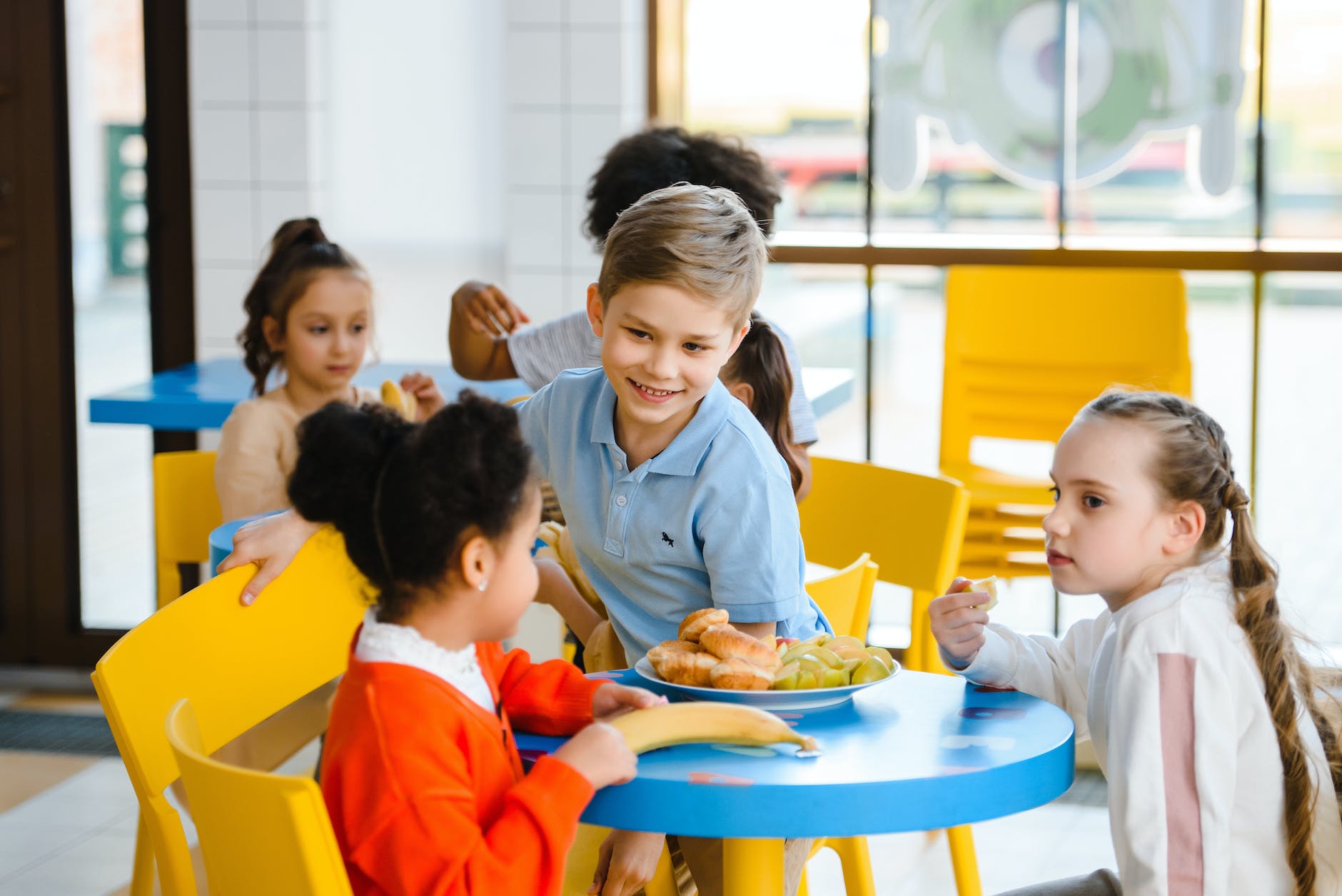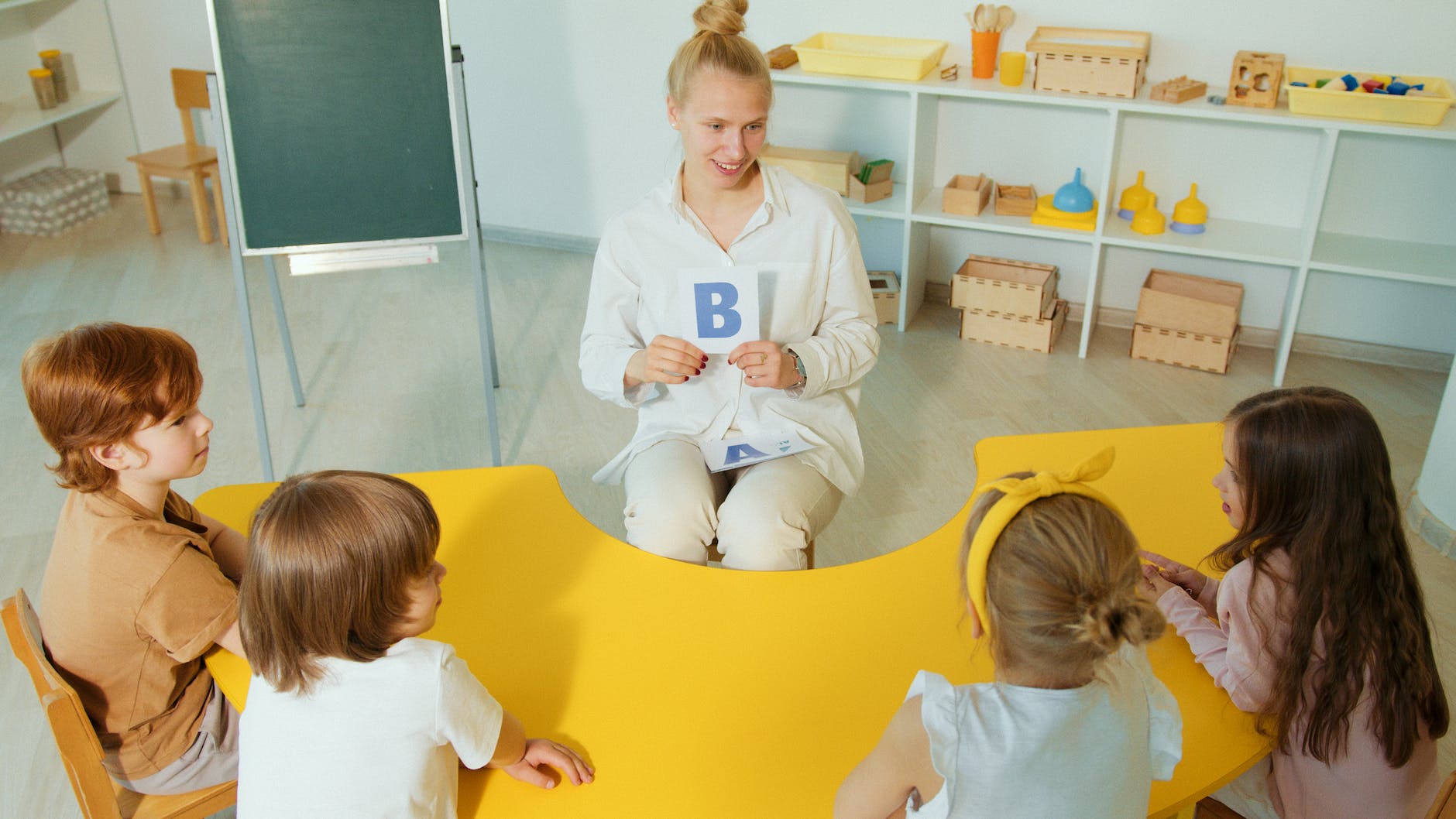If you have a child that is due to start reception in September then you may be wondering what skills they need to have mastered in order to be school ready. Firstly, stop worrying, all children start reception at different stages in their development and the teachers will help them develop in the areas where they need to. However, if you are able to help your child develop the following skills, or at least become familiar with the concept of them, before they start school ensure they are better prepared.
27 Things that will help your child be school ready
Academic Skills your child needs before they start school
Identify colours
When your child starts school they should be able to correctly identify the basic colours of the rainbow as well as knowing that there are different shades of colours too. Help them build on this knowledge by knowing the names of both common and uncommon colours.
Identify a range of animals
Most children will be able to identify different animals by the age of two or three but by the time they start school they should have built on this and be able to not only identify the type of animal but also know where to find the, for example in a farm, pet shop, or zoo.
Be able to count to 20
Helping your child learn to count will give them an advantage when they start school. You can do this using rhymes, games, apps or even household items. Start by aiming for them to be able to count to 10 confidently and then try to increase this to 20 before the academic year starts. You can make your own interactive maths activity books too which are perfect for the summer holiday leading up to September.
Recognise numbers when out of sequence
Once they can confidently count in order try and teach them how to recognise those numbers when they are out of order. You can do this by asking them to tell you what the numbers on your door, car registration or other items are, or by mixing physical numbers up and asking them to put them back in order.
Write the numbers 1-10
If you child can confidently count and recognise numbers then the next step is to help them learn how to write these numbers independently. Being able to write just a selection of numbers will be beneficial and will help them to be school ready but don’t panic if they can’t do them all correctly each time, especially the 3’s that are often confused with E’s and the numbers 6 and 9 that are commonly mixed up.

Know the alphabet
When it comes to helping your child be school ready with their literacy skills the best place to start is with the alphabet. This will be used a lot in reception so if your child is already familiar with the alphabet song it will help with the work that follows.
Recognise letters when out of sequence
Once they know the alphabet help your child to identify the names of letters, both capital and little letters, when out of sequence. One of the best ways to do this is to focus on a few letters at a time and have a word that goes with it. For example you may use m for mummy and d for daddy as well as the first letter of their own name. Once they can confidently recognise a couple slowly introduce a few more. It is unlikely children will be able to recognise all 26 letters of the alphabet out of sequence correctly every time before they start school but having a few they are very familiar with will be a solid building block for them. It will also give them a confidence boost in class when they know some of the answers.
Be able to recognise their name
Being able to recognise their name when written down will be important in reception so they can collect their belongings, book bags or know which one is their tray or peg. Most schools also use a photograph system to help in reception but this is not always the case so practise their name recognition using both big and little letters .
Write their own name
Being able to write their own name is a great skill as it helps them learn to read, improve finger dexterity and fine motor skills as well as reinforcing their letter recognition. In school they will be asked to write their name on their work, especially art work, so even if it is illegible to others, being confident enough to write their name and then recognise it again will save them some embarrassment. If your child has a very long name you might want to consider teaching them a shorter version to spell first if you’re happy with them using a nickname. So Benjamin becomes Ben and Elizabeth may use Liz or Beth.
Be able to use a pen or pencil properly
Most children are confident at mark making when they start school even if they are not able to spell their name. You can help improve this by focusing on their pen holding skills so it becomes less of a full hand grip and more of a specific pen hold. This skill will make learning to write easier as they progress through the school.

Personal skills your child should needs to be school ready
Along side the academic skills that will help your child settle in to the work involved in reception class your child should also be able to demonstrate a number of personal skills that they will be required to use on a daily basis. Although the teacher will be on hand to help those that need it they will not have enough time to do all of these tasks for all the children in their class so the more independent your child the better.
Get dressed by themselves
When your child starts school they will be required to take their coat on and off at the start and end of the day as well as at play times. Buying your child a coat with large buttons or velcro fasteners instead of a zip will be easier for them to fasten. If you want them to wear hats, gloves and scarfs too then it is important you practice putting these on and taking them off with your child before they start school. Another top tip is to buy mittens that are either attached to the coat or that attach to each other via string that runs through the arms of the coat to prevent them losing them.
In addition to this your child will have PE at least once a week and most schools will expect them to change from their standard uniform to their PE kit independently. You may want to start by sending your child, boy or girl, in elasticated trousers on PE day as they are the easiest to put on with no zips or buttons.
Go to the toilet unaided
Not only is it advised that your child is toilet trained by the time they start school put also that they are able to go to the toilet, wipe themselves, re-dress and wash their hands independently too, as it is unlikely there will be a member of staff available to help at all times. A top tip is to get your child into the habit of telling you when they need to go and then asking them to wait a few minutes to get them out of the habit of leaving it till the last minute as in school they may need to wait. This will help avoid any accidents.
Have an understanding of good hygiene
It is important that you teach your child about personal hygiene before they start school. Practice hand washing, nose blowing and covering their mouths when they cough to help prevent the spread of infections. Although it is unlikely that they will be cleaning their teeth in school, now is still the best time to encourage good dental health as well as embedding knowledge of good eye care too.

Eat independently
If you find you are still feeding your child or even just cutting up their food for them start to encourage them to do this themselves. Show them how to safely use a knife and fork and explain to them which foods can be eaten with the hands and which ones need utensils. Lunch times in schools can be chaotic and children want to eat quickly so they can go and play so helping them to do this without the teachers help will mean they aren’t left on their own whilst their friends are playing.
Know their likes and dislikes when it comes to food
When it comes to ordering their dinners children will be expected to make this choice themselves so make sure your child knows the names of the foods they do like and the names of the ones they don’t to avoid disappointment. At the end of each day try and find out what your child ordered and if they enjoyed it or not and then at the start of each day let them know what the menu choices will be and remind them what they ordered the previous week and if thy liked it or not.

Recite their address
Although it is unlikely your child will need this when in school now is a good time to teach them the first line of their address just in case. If they did find them selves lost on a school trip or separated from you on the school run knowing their address will be a massive help.
Social skills your child will need before they start school
Academic and personal skills are very important in helping your child become school ready but so too are social skills. For those that have been in a nursery or preschool setting these skills have probably already been developed but if your child has been home with you for the majority of the time you may find you need to help them develop these skills before they start school. If you are finding it hard to do so at home then try and organise some play dates, go to soft play centres and organised events where your child will have the chance to mix with others on a regular basis.
Be able to turn take
This one is very important. If your child has not been to a nursery setting and is an only child or the youngest of much older children you may find they have not had to wait their turn very often which may cause them some upset when it happens in school. You could try this at home by playing with their favourite toy and making them wait a few moments till you’ve finished with it or going to busy parks and play areas and getting them to queue for a go on the swings etc.
Role Play
Role play is a big part of learning and is great for imaginative play and learning about the real world. Some children are naturally imaginative and take to role playing easily, others find it harder. If your child does not gravitate to role ply or finds it difficult try and incorporate it in to their day more often by asking them to imagine they are certain people or professionals and you pretending to be someone else, demonstrate how role play works and join in with the fun.
Willing and able to tidy up
In school all children will be expected to not only tidy up after themselves but also each other and do collective tidy up sessions. The teacher will make this fun by playing music and encouraging everyone to join in but teaching your child to tidy up after themselves naturally will be a big help and prevent resistance in class.
Use scissors safely
School will use a lot of creative learning opportunities as there are a number of benefits to arts and crafts. Making sure your child can use scissors safely will help safeguard them and the children around them. If they are left handed practise using left handed scissors at home and let school know as they will often have both left and right handed scissors in school.
Know that they need to raise their hand if they wish to speak to the teacher
This may be a novel concept to your child so explain the process before they start school so they know what to expect.
To be quiet and listen when others are talking
Another very important skill that is needed by children when they start school. It is hard to teach in a home environment but again you can explain the process to them in advance if they do’t already attend a nursery or preschool setting so they know what is expected of them on some level.

Able to sit still when asked
There will periods throughout the day when all the children will be expected to sit still and either listen to the teacher or focus on a task. To start with these periods of time will be small but they will get longer as the academic year progresses. If you’re child finds it hard to sit still then this is something you could practise with them in advance.
Follow simple instructions
Again there will be an expectation that your child can follow simple instructions. Things like, get your books out, sit on your chair, line up at the door. They may be given more than one instruction at once and although they will be able to copy their peers knowing they can listen, retain and follow simple instructions will make their transition to school life easier.
Recognise their own belongings
When your child starts school make sure they know which one is their coat, bag and lunch box. A great way to do this is to take them shopping with you and pick the ones they want that way they are more likely to remember which ones are theirs. Then label everything with their name. If they are able to recognise their own name this will help but if they aren’t able to recognise the letter in their name just yet then opt for stickers that have a picture alongside their name and get them to recognise this instead. Being able to recognise their own things will make it much easier when they go out to play, for lunch or are getting ready to come home at the end of the day and will also help prevent them bringing home the wrong items.

The ability to play independently
If your child loves playing with other children or with you then it is likely they will love making new friends at school and will find the social aspect easier. However, there are times when the children will be asked to work or play independently and some children can struggle with this. To help them improve this skill set your child a small play activity, start them off and then tell them you will be back to join in in 5 minutes. When you return get them to tell you what they did during the independent play. Once 5 minutes is being completed without them stopping their play, following you or getting upset increase it to 10 minutes and so on.
Basic safety knowledge
To hep your child keep themselves and others safe in the school environment is it paramount that they understand basic safety knowledge and commands such as stop, no, don’t and that they will respond accordingly and quickly.
If you help your child master some or all of the above 27 skills then they will be school ready before you know it.
